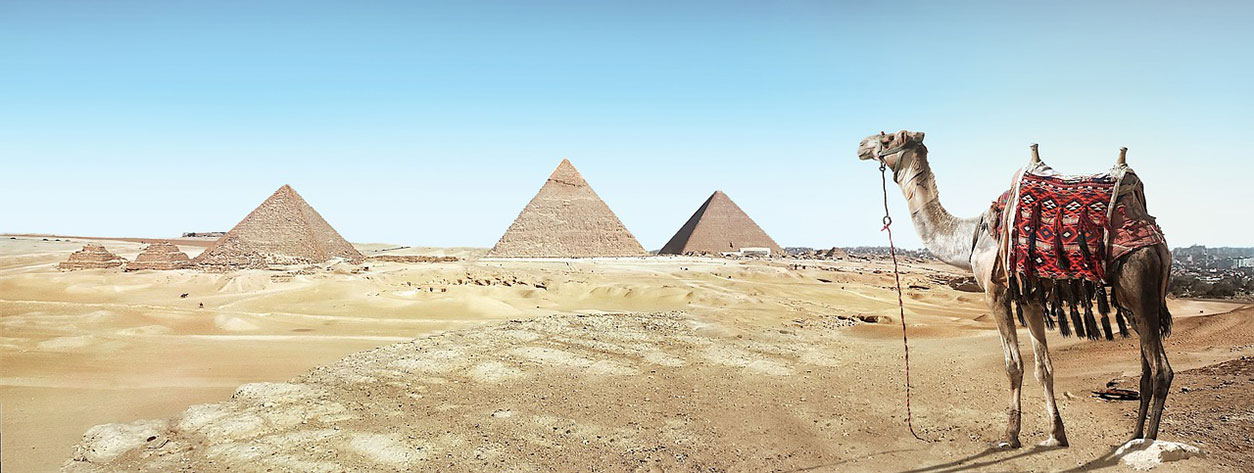
Click to open and follow along with the text.
Good morning friends, today is Sunday June 30 and we’re going to take a major detour for the next 40 days of our summer Scripture reading journey. OK?
Yesterday we read 2 Corinthians 5 and concluded with those powerful verses 17-21 “Therefore, if anyone is in Christ, they are a new creation, the old is gone and the new has come. All this is from God, who reconciled us to Himself through Christ and gave us the ministry of reconciliation… We are therefore Christ’s ambassadors, as though God were making His appeal [to the world] through us…God made Him [Jesus] who had no sin to be sin for us, so that we might become the righteousness of God.”
Those powerful verses define who we are as ‘new creation Christians’ and our God given ‘Christ’s Ambassadors‘ purpose in life. No Old Testament book builds a better foundation for this great truth than Exodus. Paul, as a good rabbinical student, would undoubtedly have memorized all 40 chapters by heart, word for word, in the original Hebrew. Think about that!
It was Exodus which had made it so difficult for Paul to accept the Jesus movement, and drove him to try to exterminate it. Yet, after his encounter with Jesus, on the road to Damascus, Jesus, I believed, used the book of Exodus to teach Paul the Gospel of Jesus…salvation by grace, through faith in Christ… which Paul then proclaimed so passionately in word and writing, even to his death.
So let’s take the next 40 days and explore what I believe to be, the most exciting book in the Old Testament…Exodus. We’ll come back and continue Paul’s letters after that. Are you ready? Here we go, Exodus chapter 1.
Probably that famous movie “The 10 Commandments” comes to your mind as you read this first chapter of Exodus. May I give you a brief overview of the preceding story?
You know what happened in the garden of Eden with Adam and Eve, and their refusal to trust God and instead believe a talking serpent, and thus God’s designed utopia was destroyed and evil entered our world.
Several generations later, in Genesis 6, evil was dominating the entire world. It was so bad this is God’s assessment: “The LORD saw how great man’s wickedness on the earth had become, and that every inclination of the thoughts of his heart was only evil all the time. The LORD was grieved that He had made mankind on the earth, and His heart with filled with pain. So the LORD said, ‘I will wipe mankind, whom I have created [in God’s image] from the face of the earth – men and animals…- for I am grieved that I have made them.” That’s just plain hard for me to grasp. That God’s heart was filled with pain? That God was so disturbed by mankind’s rejection of Him, and embrace of evil, that He actually was grieved that He had made our ancestors. Think about that friends! Genesis 6 goes on. . . “But Noah found favor in the eyes of the LORD. Noah was a righteous man, blameless among the people of his time, and he walked with God.” (Gen. 6:5-9)
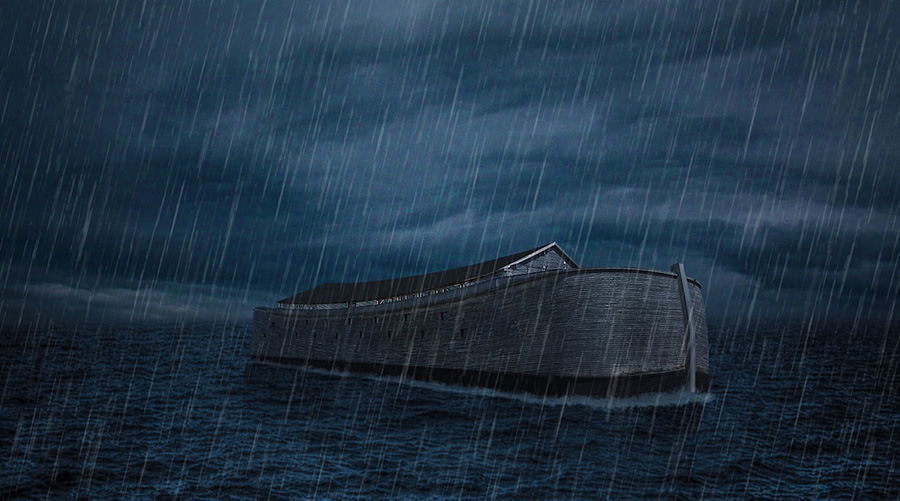
You remember the story, right? Noah and his three boys spent many years building a huge ark, exactly according to God’s design, with no Home Depot or Lowes nearby, and no modern day tools. An architectural phenomenon! They built this huge floating zoo, in anticipation of something God promised would occur, but was totally unimaginable… a global flood. It was this man’s faith in God which qualified him for the description in vs. 9 “Noah was a righteous man, blameless among the people of his time, and he walked with God.”
As you read that, does it cause you, like it does me, to ask the question: ‘and what about me‘?
You’ll recall Noah came out of that ark to a whole new world. The only living people were he and his family, and the first thing they did was build an altar and worship God. Sadly, it didn’t take long and evil once again crept in, and as the population grew from that one family, so did dysfunction and wickedness.
Generations later, God once again reached to one man, this time Abram, living in Ur, a city which would be in modern day Iraq. So have you ever considered, Abraham would have been an Iraqi if he lived today! Evidently Abram was somewhat like Noah, even though living surrounded by wickedness.
God invited Abram to leave his homeland and extended family, and take a long journey to a place God would show him. God wanted to try again with the human race, and this time with a new nation of people, in a new place. So faith-filled Abram and his wife Sarai, left Ur and with Abram’s father Terah, traveled about 1000 miles north to Haran, where they lived for a while and Terah died.
Then in Genesis 12, God re-affirmed his call to Abram, and led them to what is today modern Israel, known then as Canaan. God made a covenant with Abram, promising him that land, and also promising him and Sarai a son, even though they were very old and childless. You remember the story, right? Abram moved down to Egypt for a while, to escape a famine, and while there picked up some servants including a woman named Hagar, then returned to Canaan after the famine was over.
Of course you remember the disaster when Sarai thought God had forgotten them and gave her servant Hagar to Abram to have a child for her. A surrogate mother. Have you ever met anyone who has done that… I have. But it wasn’t God’s way. God had promised Abram & Sarai a child, not Abram & Hagar, and that son Ishmael was a problem from his first day.
In Genesis 15 God re-affirmed his covenant with Abram and changed his named to Abraham, meaning “father of many nations” and also changed Sarai’s name to Sarah and promised them that they together, would have that long awaited miracle son even though Abraham was 100 and Sarah 90 years old. Also in that chapter, God initiated the mark of circumcision for every male descendant of Abraham, as a mark of this special people of God.
In Genesis 21 Isaac, the miracle son, is born to Sarah in her old age, and a few years later in Genesis 22 you’ll recall God challenges Abraham’s faith, by asking if he’s willing to sacrifice his beloved Isaac. Remember the powerful story on Mount Moriah where Abraham built an altar, bound his son, laid him on the wood and was ready by faith to slay his beloved son, confident somehow God would raise him up again?. It was a picture my friends… a picture of the very same thing which took place about 2000 years later, in the same place. God was the Father then, and His Son Jesus was hanging on a cross…only this time God did NOT spare His son, and that’s why you and I have salvation! In Genesis 22 with Abraham, at the last minute, God provided a ram in the thicket, and Abraham gave God the name Jehovah Jireh… the LORD who provides.
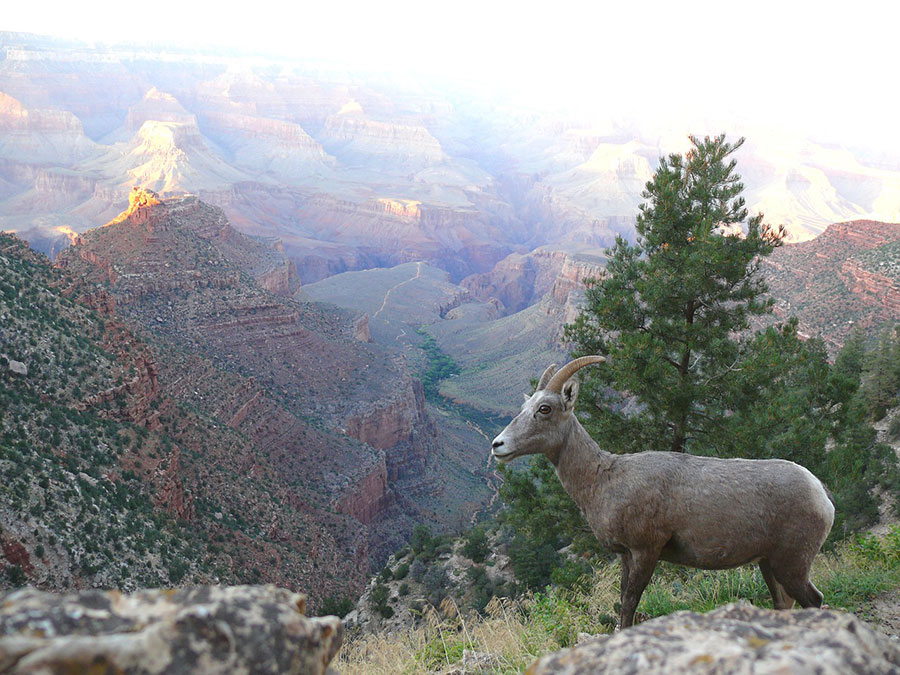
Do you know where that mountain top place where Abraham nearly sacrificed his son Isaac is located today? Under the “Dome of the Rock” in Jerusalem! It is extremely significant. That was the place, many years later, King Solomon built the great Temple, for the city of David, Jerusalem, which was built around that hillside. It was the place the second Temple in 538bc was built. And my friends, from that very spot, where Abraham nearly sacrificed his son Isaac, you can look across the city of Jerusalem, to the place called “Golgatha”, the hill on which Jesus was crucified!! Yes! I’ve stood at the Dome of the Rock and today, 2019, you can see Gordon’s Calvary just beyond the city wall, outside the Damascus gate. Can you see the story of God’s dealing with the human race, stretched out over the centuries?
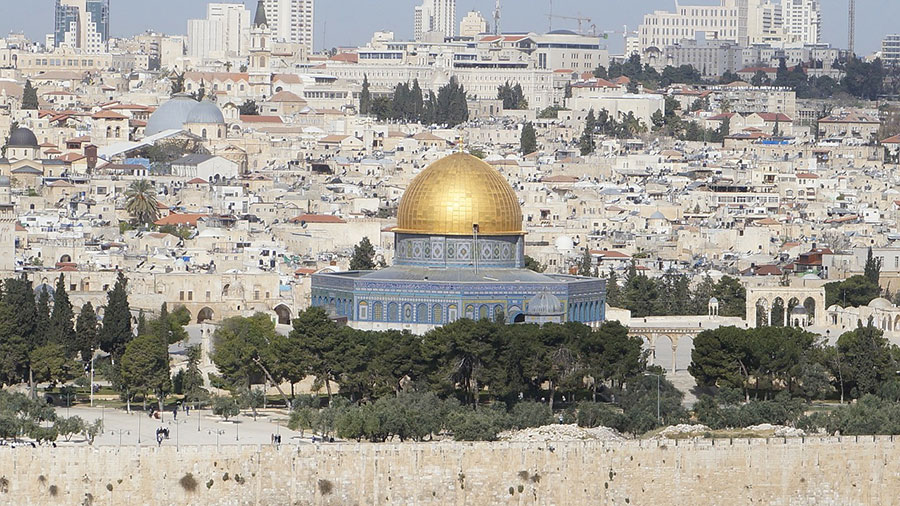
Isaac grew up and married Rebekah, in a remarkable story found in Genesis 24, and she like Sarah was barren, unable to have children. Unlike Abraham & Sarah & Hagar, Isaac and Rebekah did not take matters into their own hands and make their own plan. They simply prayed, and 20 years later God opened her womb, and Rebekah bore twins…Jacob & Esau.
These twins grew up as competitors and Jacob was deceitful and stole his brothers birthright and inheritance, and had to flee for his life. He went back to that place Haran, where some of his extended family still lived, and found a wife there, Rachel. But his Uncle was even more deceitful than Jacob, and he ended up with two sisters, Rachel and Leah as his wives, and neither of them were able to bear children. Both had servant girls and in the custom of the day, both gave their servant girls to Jacob, their husband, and he began to have children with them. Then God opened the wombs of both Leah and Rachel and before too long, Jacob had 12 sons and 1 daughter!! Can you imagine that household!
Jacob led his large family to return back to Canaan, where his father Isaac and brother Esau were living. Jacob’s youngest son at that time was his favorite, named Joseph…ah, now you remember the story, right? Joseph was sold by his brothers to a traveling caravan who took him to Egypt and sold him as a slave, and the brothers told their father Jacob he must have been killed, eaten by a wild animal, because they found his many colored beautiful coat, all tore up and bloodied. Jacob recognized the coat. He had given it to his favorite son Joseph as a gift… and he mourned deeply for a long time.
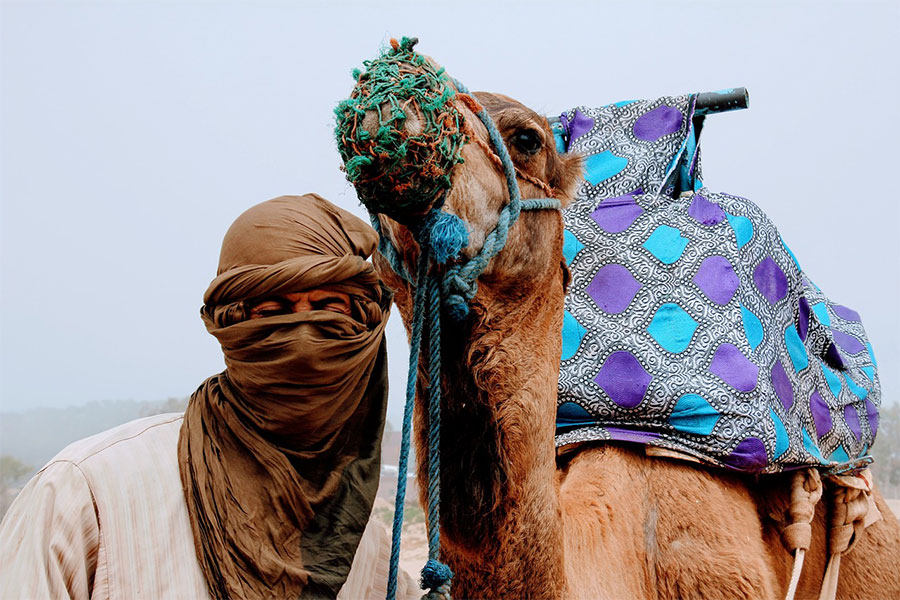
Remember what happened to Joseph, a slave in Potiphar’s house? You’ll find it in Genesis 39-41. Falsely accused by Mrs. Potiphar, Joseph is thrown into prison for several years.
Interestingly, three times in Genesis 39 it says “The LORD was with Joseph”. No matter the difficult circumstances of your life, can you say “The LORD is with me”?
The Pharaoh of Egypt had a dream which troubled him greatly and none of his sorcerers could interpret it. The chief cupbearer of the Pharaoh suddenly remembered Joseph, held in the same prison where he had once been. Joseph had interpreted a dream for the cupbearer and so he mentioned Joseph to the Pharaoh…and Joseph is cleaned up and brought to the Pharaoh, with a chance to get himself out of prison. The Pharaoh said to Joseph “I had a dream and no one can interpret it. But I have heard it said of you, that when you hear a dream you can interpret it.”
“I cannot do it, Joseph replied to Pharaoh, but God will give Pharaoh the answer he desires.” (Gen. 41:15,16).
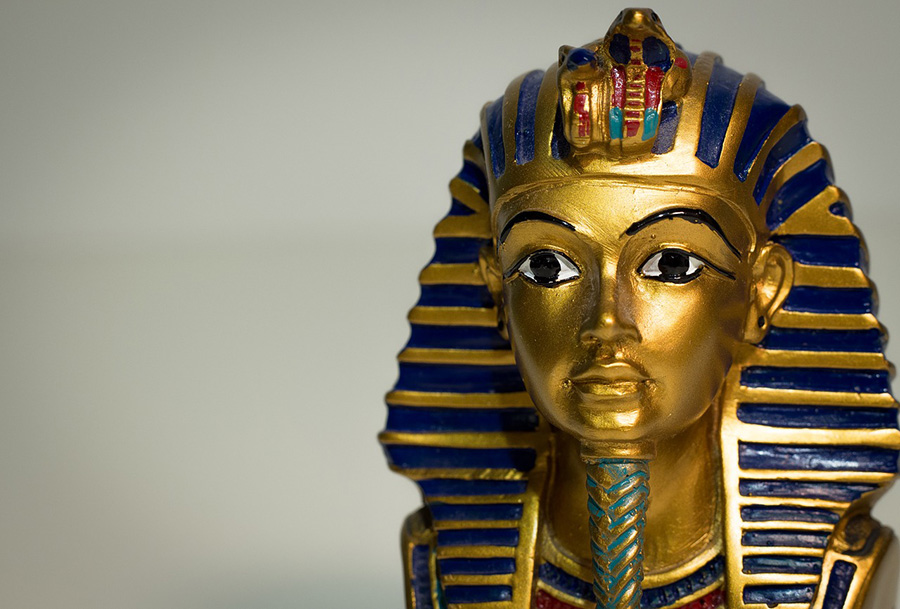
You may recall, Joseph did interpret the dream. It was a warning from God…that 7 years of bountiful harvest was to be followed by 7 years of dreadful famine. Pharaoh was delighted to have the dream explained, but also terrified at the prospects. So he said “Can we find anyone like this man, in whom is the spirit of God? Then Pharaoh said to Joseph, ‘Since God has made all this known to you, there is no one so discerning and wise as you. You shall be in charge of my palace, and all my people are to submit to your orders…I hereby put you in charge of the whole land of Egypt…” !! (Gen. 41:39,40)
And with that, God had positioned in Egypt, an honest man who feared God, and would lead the nation wisely, as they gathered up the bounty in those first 7 years to survive the devastation of the 7 years of famine. The famine, you’ll recall, was so widespread his own family back in Canaan were starving and his brothers came to Egypt to buy food. They stood in front of what they understood to be the Prime Minister of Egypt, buying food, having no idea it was their brother Joseph, whom they had sold as a slave so many years before. It was Joseph’s opportunity for revenge… but rather, he offered forgiveness, and invited all of his family to moved to Egypt, with his promise that he would provide for them, bountifully. Genesis 45 has that remarkable story, if you haven’t read it lately.
Jacob, Joseph’s father, by then an old man, who had presumed his favorite son had been eaten by a wild animal so many years ago, nearly had a heart attack as his sons came back from buying food in Egypt to tell him the truth, that Joseph was alive and was Prime Minister of all Egypt, and inviting them to move to Egypt!
They packed up moved… lock, stock and barrel, as they say. And they didn’t just move to anyplace, for Joseph had told his brothers “I will give you the best of the land of Egypt, and you can enjoy the fat of the land.” And they didn’t bring their old dessert tents, for Joseph had said “Never mind about your belongings, because the best of all Egypt will be yours.” (Gen. 45:18-20).
So old Jacob and all 70 of his three generation family, moved to “the best of the land” in Egypt. When they arrived, they said something very significant to Pharaoh, as Joseph introduced them…“We have come to live here awhile, because the famine is severe in Canaan…” (Gen. 47:4). But long after the famine was over, they enjoyed the ‘best of the land of Egypt’ and refused to return home, to the land God had given them. 17 years later Jacob died (Gen. 47:28). Before his death Jacob made a profound statement: “Do not bury me in Egypt, but when I rest with my fathers, carry me out of Egypt and bury me where they are buried…I am about to die, but God will be with you, and take you back to the land of your fathers.” (Gen. 47:30; 48:21)
It has always struck me that Jacob failed in his leadership of his family, miserably. It was nearly 10 years after the famine was over when he died, yet it appears he made no effort to lead his family back to God’s land. Sadly, Joseph did the same. He too did not urge his family to leave the bounty of Egypt and return to Canaan, and so Genesis ends, with Joseph at the age of 110 nearing the end of his life, saying to his large family “I am about to die. But God will surely come to your aid and take you up out of this land, to the land He promised on oath to Abraham, Isaac and Jacob.’ And Joseph made the sons of Israel (Jacob) swear an oath and said ‘God will surely come to your aid and then you must carry my bones up from this place.’ (Gen. 50:24-26)
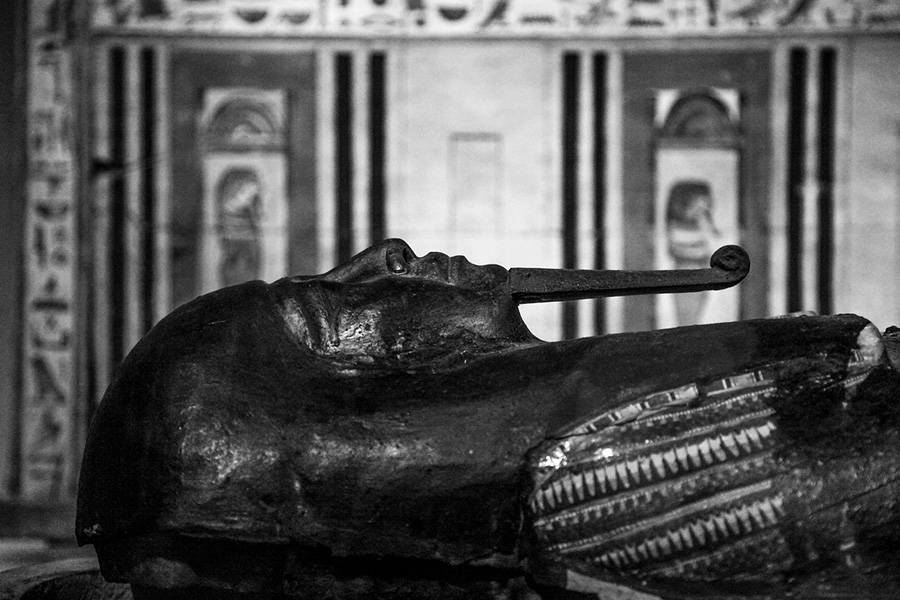
There is a gap of more than 300 years between the end of Genesis 50 and the first verse of Exodus 1. You see in the last verse of Genesis 50, they embalmed Joseph and put him in a coffin, but did not bury the coffin. It remained above ground, in the backroom of someone in his family, passed from generation to generation, waiting for someone to decide it’s time to go back to Canaan.
But friends, as you read the first chapter of Exodus today, you see what happened. Time passed. The story of Joseph was forgotten. The descendants of Abraham, Isaac, Jacob and his 12 sons multiplied rapidly and centuries after Joseph had died, the Pharaoh of Egypt was frightened by the thought that this huge mass of people might rise up against his royal family and thus he enslaved them. But still they multiplied.
So by the end of Exodus 1, the Pharaoh had passed a law even worse than the legal abortion we have in America. In Egypt, it was the law that midwives helping pregnant Hebrew women, would kill the babies at the time of birth, if they were found to be boys! But the Hebrew midwives simply couldn’t bring themselves to kill innocent babies! So God blessed them, and then Pharaoh passed a new law… anyone who found a Hebrew infant boy, was to throw them into the Nile river, and watch them drown!
My friends… stop for a moment and ponder this remarkable story, and God’s patience with humanity, generation after generation. Think about God’s determination to keep trying to have a people who would love Him, honor Him with their lives, accept His love for them. And over and over people grew tired of God and turned to their own devices…and wickedness consumed them. Now, look around our world, especially America. What do you see my friends? What does God want us to learn from this remarkable story of Genesis? What is your response to Him today?

Pastor Doug Anderson 262.441.8785
“Let us run with perseverance the race marked out for us, with our eyes fixed on Jesus…” (Heb. 12:1,2)
Archived back issues of “Walking with Jesus” and other resources are available by clicking here to open our ‘home page’ (or go to HOME at upper right of this page).
